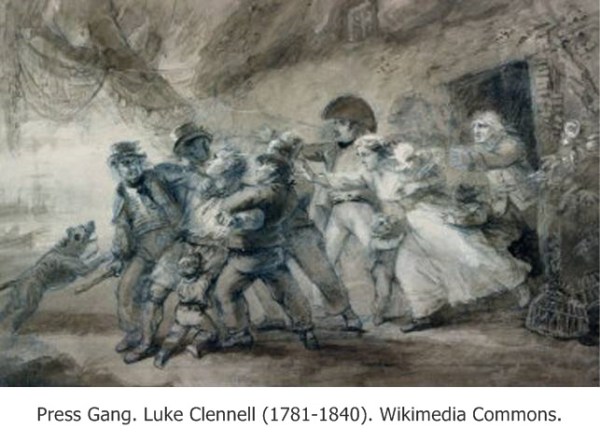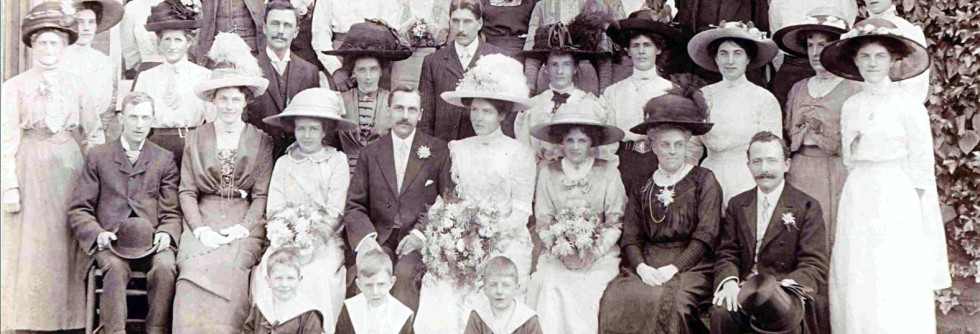Do you have a British ancestor who suddenly seems to have vanished? If he worked on the seas, or perhaps even if he did not, he may have been pressed into service by the Royal Navy. In the 17th and 18th centuries, the Royal Navy used press gangs, as they were commonly known, to forcibly seize sailors, both from other vessels while at sea, and from docks, pubs, and homes while ashore.
Why did the navy’s impress service employ such tactics? During times of war, there was a need for greater recruitment for the navy. Legislation allowed for both voluntary enlistment and forcible service. Men who volunteered were paid a bounty; those pressed into service were offered no such inducement.

Not only were fisherman and merchant mariners fair targets, but so were the able-bodied unemployed, who could be compelled to serve by the magistrates. The working conditions were poor, and pay was often withheld for years at a time to discourage defection.
The sudden and unexpected absence of a husband, son, or father created financial hardships for families left behind, and they were often forced to rely on parish poor relief.
Want more information about impressed sailors? Have a look at the sources.
Sources
- UK Parliament. Living Heritage: Your country needs you. Press gangs. http://goo.gl/1ynKNv : accessed 27 March 2016.
- Trinity House Maritime Museum. Life at sea: Hazards of the sea. http://goo.gl/mLCaIp : accessed 27 March 2016.
- National Museum of the Royal Navy. Impressment. Library and Information Services Information Sheet No 078. http://www.nmrn-portsmouth.org.uk/sites/default/files/Impressment.pdf : accessed 27 March 2016.
[print_link]

